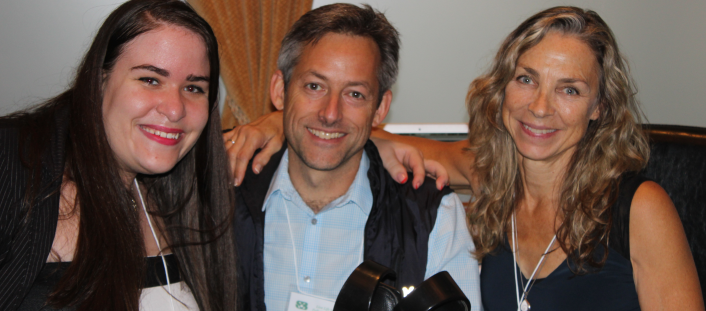What's New?
The Phoenix Attitude Blog

SideStix - Ain't No Mountain High Enough
2015-03-13 Posted By Sarah Doherty
Sarah Doherty @sidestix
Through my work as an occupational therapist and also as an amputee, I am constantly reminded how quickly life can change for an individual or family. The onset loss of ability is unique to each of us and can be the result of an accumulation of chronic issues, or the sudden blow of a traumatic incident. Regardless of the origin, we are all in the same boat.
We all need to navigate the health system, evaluate the tools out there that give us mobility and independence. We also need to rely on each other to stay informed, supported and motivated. Perhaps more importantly, we need to step back and really look at how we are doing.
Are we mired in an underfunded and over-taxed healthcare system that often promotes solutions based on the lowest possible price – not the best possible outcome? Or, in the case of for-profit healthcare systems, the overuse of diagnostic procedures and interventions? Are we making the right choices for self and for each other? Are we sure the choices we make will lead to a better quality of life?
Questioning “what is” and asking “what can be” is essential in creating new innovative options for us to stay healthy and age with dignity.
Asking questions can help us to see things from a different perspective. Often, with a new perspective we can come up with practical and creative solutions that have been right in front of our eyes, just waiting to be recognized. In the book, A More Beautiful Question, Warren Berger gives insight into the fact that our height of questioning occurs at our 4 year old self and as we age, we ask less and less questions, and become satisfied with the status quo.
Over the years, there have been numerous innovative solutions to assist people with their loss of ability. From simple voice control devices, to neurological interfaces that allow the control of prostheses through thought alone. In the early 80s, lightweight wheelchairs with cambered wheels, replaced the only wheeled mobility available on the market (the 77 pound Everest and Jennings wheelchair). Now, those who are dependent on wheeled mobility can independently transfer their chair into a car and can participate in many different sports. Enhanced walking mobility devices are just beginning to change and incorporate new technology built with quality materials. SideStix crutches are leading the way, but there needs to be more attention paid to creating new tools and a willingness of the user to adopt these tools to promote health and fitness.
Although some of us are lucky enough to have a friend or loved one to help us navigate the complex and confusing healthcare system, it can still be a daunting task to keep track of our medical journey. Phoenix Attitude is a new website that allows us to track our medical appointments, medication, side effects and the emotional rollercoaster that often accompanies changes in one’s ability. Phoenix Attitude empowers us to take charge of our own lives. It gives us a platform to unparalleled insight (into what works and what doesn’t work) medically, socially and emotionally.
On an institutional level, Dr. Atul Gawande, general surgeon and best-selling author of the new book, Being Mortal, describes the current practice of care for our aging population and also where our health care system is heading. He challenges the current situation for the elderly or the terminally ill and puts forth a hopeful example by describing a nursing home which was revitalized and humanized – with wonderful results. Health care professionals and reformers working with Dr. Gawande are designing a system that is inclusive of the client’s belief systems including decisions about their own life and death arrangements.
It’s vitally important to question the status quo. We need to raise the bar in health care, in order to find ways to improve the system. We can and should create accessible tools, needed to live a healthier and ultimately happier life, regardless of the changes in our ability.




 Sign up for our newsletter
Sign up for our newsletter



